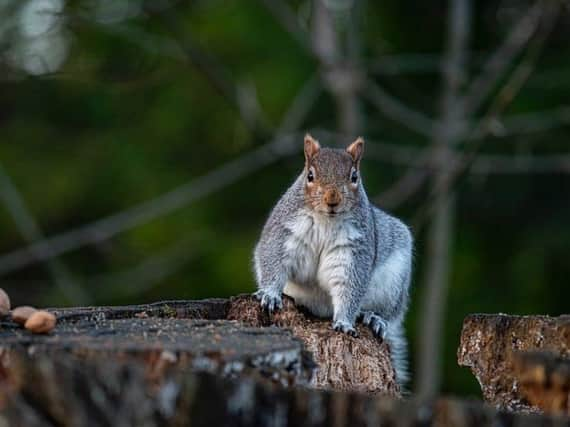Wiganers urged to take part in nationwide wildlife survey


Wiganers are being asked to keep an eye out for wild mammals in their gardens this year, as part of a wildlife survey.
Wildlife charity People’s Trust for Endangered Species (PTES) is running its Living with Mammals survey throughout all of 2021. The charity saw record-breaking numbers of volunteers taking part last year, thanks to more people being at home and having the time to watch wildlife in their gardens and nearby green spaces.
Advertisement
Hide AdAdvertisement
Hide AdThe result was a huge increase in the number of mammal sightings, from hazel dormice on birdfeeders to hedgehogs snuffling in gardens after dark. Participation sparked a newfound appreciation, love and interest in nature for many, in all corners of the country.
PTES is keen to build on this positive relationship with nature made during 2020’s lockdowns, which not only benefits the UK’s wildlife, but can also have a positive impact on the mental health and wellbeing of those taking part.
Now, they are asking people to record sightings and signs of wild mammals (such as footprints and droppings) in their gardens or local green spaces throughout this year. Anyone in the UK can take part in Living with Mammals, by looking in gardens, allotments, parks and other green spaces, so whether you have hedgehogs under your hedge or even a pine marten on your patio, all sightings are valuable.
David Wembridge, Mammal Surveys Coordinator, said: “Despite the challenges of 2020, one positive was the number of people seeing wild mammals more frequently, some for the first time.
Advertisement
Hide AdAdvertisement
Hide Ad“Connections with nature are so important - not only do we gain a unique insight into the lives of our wild neighbours, which is hugely beneficial for conservation, but wildlife watching and being close to nature is known to have a positive impact on our mental health too, which is needed now perhaps more than ever.”
He added: “We launched Living with Mammals 18 years ago. The data gathered enables us to better understand how mammal populations are faring across the UK and where conservation action is needed. With access to this unique long-term database of population trends, we can spot when a species is in trouble and act.”
To take part visit www.livingwithmammals.ptes.org